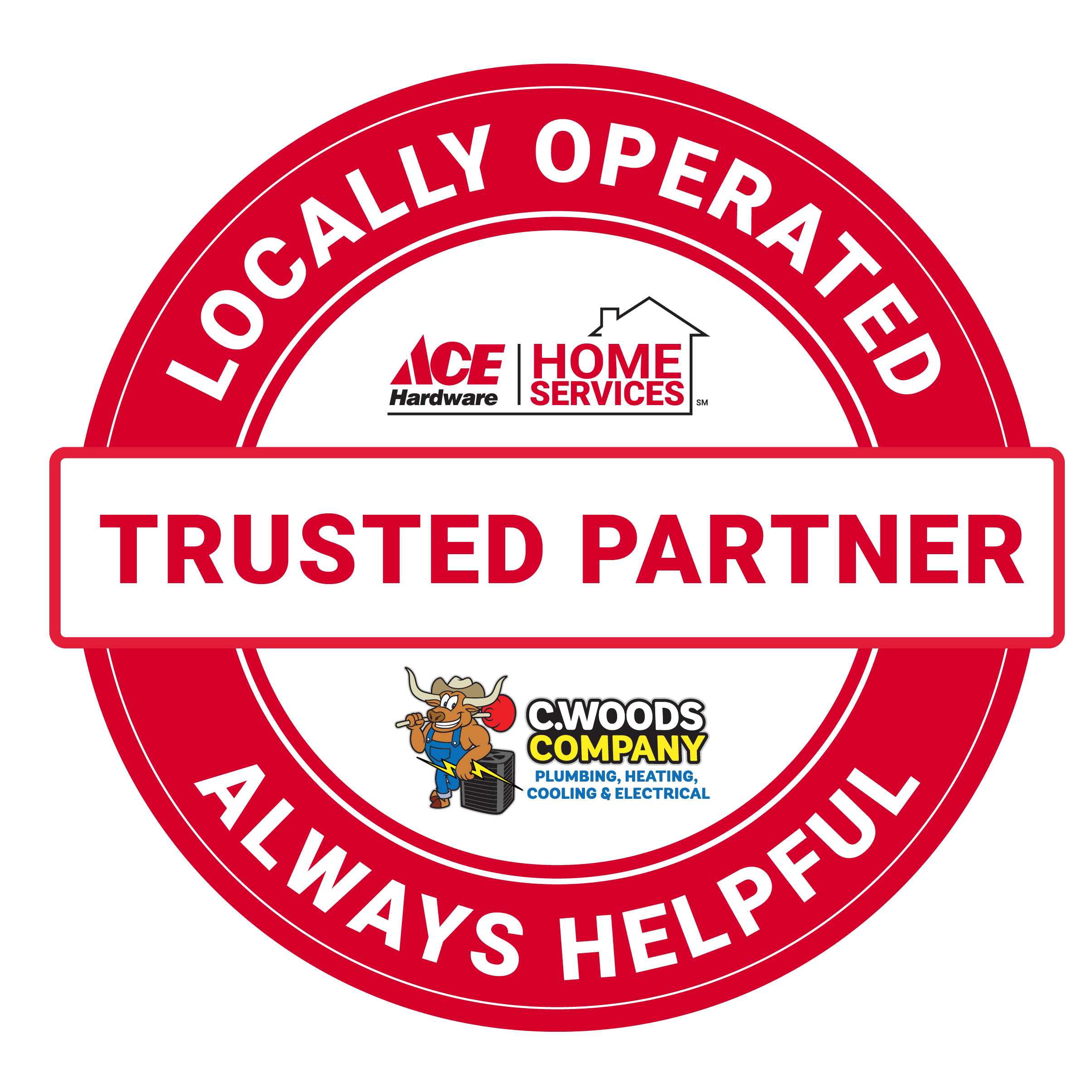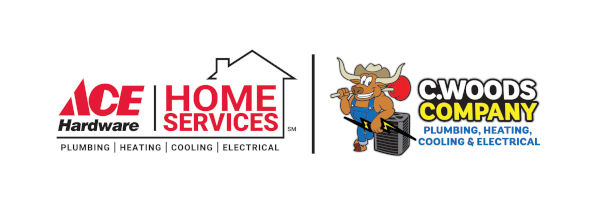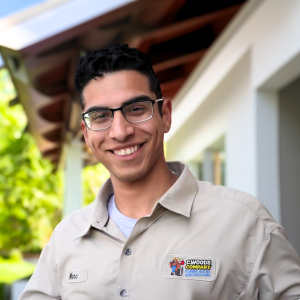Premier Plumbing, Heating and Air Conditioning Company in Tyler and Longview, TX
Looking for a trusted electrical, plumbing, heating, and AC company in the Tyler and Longview, TX areas? Call C. Woods Company at (903) 255-7441 to discuss your needs today!
Finding a reliable contractor for your plumbing, heating, and AC needs shouldn’t be difficult. With C. Woods Company, you won’t have to look all over, because our expert plumbers and HVAC technicians handle all three!
For over 60 years, Tyler and Longview, TX residents have counted on us for all of their plumbing and indoor comfort problems. You can count on us to provide you with the best service possible and the right solutions to meet your needs.
Calling us for service means you’ll enjoy the best of both worlds – exceptional customer service and professional, expert repairs and installations done right the first time. We always go the extra mile to make sure you are happy with your service from start to finish.
Fast & Reliable Plumbing,
Heating & Air Conditioning Services
Nobody wants to deal with electrical, plumbing or HVAC problems, but when they happen you want to have a reliable team on your side. That’s where we come in! Our technicians are expertly trained and certified so you can rest assured that your electrical, plumbing repair, AC installation, or heating service will be performed perfectly, so you can get back to your day to day routine.
Courteous &
Friendly
Done Right
The First Time
Screened
Technicians
Personalized
Solutions
Our Comprehensive Plumbing Services.
At C. Woods Company, we provide a wide range of plumbing services to meet the diverse needs of both residential and commercial customers in the Tyler and Longview, TX areas. Our name is synonymous with quality, reliability, and efficiency, underlined by our commitment to delivering dependable, quick, and cost-effective services.
Our Extensive Range of Services:
- Emergency Plumbing Services: We are on call round-the-clock to handle your urgent plumbing situations.
- Water Heater Repair and Installation: If your water heater is failing to provide consistent hot water, our skilled team can diagnose and repair the issue. We also offer installation services for new units, including energy-efficient tankless models.
- Bathroom Remodeling: Our experts can transform your bathroom to meet your aesthetic preferences or update irreparable fixtures, always in compliance with local building codes for safety and functionality.
- Burst Pipe Repair: We provide rapid and efficient repair services for burst pipes to prevent extensive water damage.
- Drain Cleaning & Hydrojetting: Our team can unclog and clean your drains using hydrojetting technology, ensuring smooth flow and preventing potential blockages.
- Gas Leak Detection & Gas Line Repair and Installation: We offer essential gas line services. If you suspect a leak, our trained technicians will carry out a thorough inspection and perform necessary repairs or replacements.
- Kitchen Plumbing and Garbage Disposals: We offer full-service kitchen plumbing solutions, including installation, repair, and maintenance of garbage disposal systems.
- Repiping Services: If your old pipes are causing problems, we can replace them with new, high-quality piping.
- Sewer Line Repair & Replacement: We can address issues with your sewer lines, providing comprehensive repair and replacement services.
- Slab Leak Repair: Our team is proficient in detecting and repairing slab leaks that can cause extensive damage if left unattended.
- Water Filtration Systems: We provide installation and maintenance services for water filtration systems, ensuring you have access to clean, safe water.
- Backflow Testing and Repair: Our skilled technicians can carry out regular maintenance, repair, and testing of your backflow system to prevent water supply contamination.
Our commitment to quality service and customer satisfaction ensures that we resolve your plumbing issues swiftly, minimizing any impact on your business or home comfort. We utilize the latest equipment and methods to provide exceptional service and prevent future issues.
Heating and Cooling Services
Dealing with a faulty AC or furnace? Don’t worry, we’re here to get things back to normal!
At C. Woods Company, we offer an extensive range of heating and cooling services to address your needs:
- AC Maintenance, Repair, and Replacement: Regular maintenance and timely repairs can extend the life of your AC unit. If needed, we also offer efficient replacement services.
- AC Evaporator Coil Services: Evaporator coils play a vital role in cooling your space. Our expert team can service, repair or replace them to ensure your AC system performs optimally.
- Air Handler Services: Air handlers are crucial to distributing conditioned air throughout your building. We offer maintenance, repair, and replacement services to keep your air handler running smoothly.
- Ductless Mini Split AC Systems: We can install, repair, and service these efficient and flexible air conditioning solutions that don’t require extensive ductwork.
- Heating System Repair and Replacement: We provide professional repairs for various heating systems and can replace outdated or broken systems to keep your home or business cozy.
- Furnace Maintenance, Repair, and Replacement: Regular furnace maintenance can prevent breakdowns and enhance performance. We offer comprehensive repair and replacement services when needed.
- Heat Pump Services: We service all types of heat pumps, providing maintenance, repair, and installation to keep your space comfortable year-round.
- AC & Furnace Filter Replacement: A clean filter is crucial for the efficient operation of your AC or furnace. We provide filter replacement services to ensure good air quality and system longevity.
- AC Purifier Services: Keep your indoor air clean and healthy with our AC purifier services. We offer installation, maintenance, and repair of AC purifiers.
Ensuring a comfortable and safe environment in your home or business is our top priority. That’s why we offer premium emergency AC and furnace repair services for residential and commercial customers in Tyler and Longview, TX.









"Keeping Your Family Comfortable
Since 1956"
Over the past 60 years, thousands of homeowners and business owners have trusted us with all their indoor maintenance needs. In this time, we’ve built a reputation for quality and dependability. It’s no wonder that most of our customers return to us again and refer us to their friends and family.
When you need expert electrical, plumbing, heating and air conditioning services, C. Woods Company is the trusted team to call. You can count on us 24 hours a day, 365 days a year. That’s how committed we are to keeping your home safe and comfortable!
Day or night, C. Woods Company is there! Give us a call today at (903) 255-7441 and restore the comfort of your home today.






